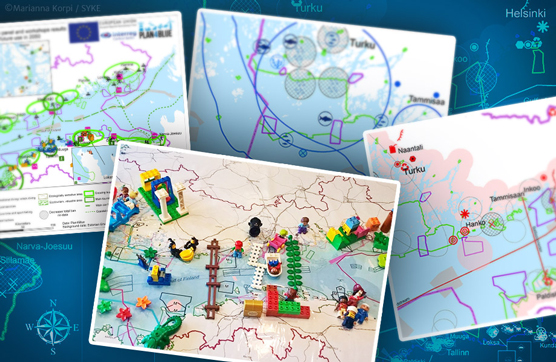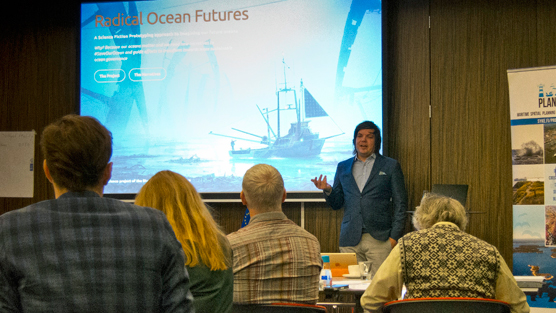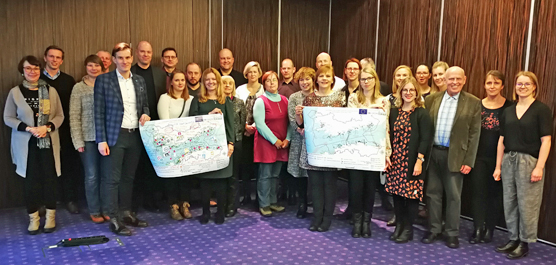Second Plan4Blue workshop “Scenarios for Blue Economy” in Tallinn, 23-24 January, 2018

© Marianna Korpi / SYKE
In the beginning of 2018 Plan4Blue organised the second scenario workshop. The focus of the workshop was to elaborate the future scenarios that were developed based on the first workshop and results of a Delphi expert panel.
The second scenario workshop was attended by 40 participants from Estonia and Finland representing various fields and expertise from private and public sectors – universities, research institutes, planning authorities, sectoral agencies, companies and ministries. The scenarios were elaborated through different kinds of exercises – futures tables, pathways and mapping. Working titles of the alternative future scenarios are presented below.
Workshop started with a pre-meeting and get-together on Tuesday 23.1. to prepare all participants for next day’s work. Liisi Lees (University of Tartu) gave an introductory talk on environmental sustainability of Blue Economy and explained how the theme tackled in The Agenda 2030 for Sustainable Development and Sustainable Development Goals.
The second day 24.1. started with an extremely inspirational keynote speak “Three decades ahead – How to come to grips with uncertain ocean futures?” by Andrew Merrie (PhD, communication officer) from Stockholm Resilience Center. Andrew introduced his and his colleagues’ work on Radical Ocean Futures – scientifically grounded narratives of potential future oceans. Their project blends art and science to help us explore future oceans imaginatively. Read more about the "Radical Ocean Futures" project.

Andrew Merrie (PhD, Communication officer, Stockholm Resilience Center) introducing their future’s thinking methods
Insights and inputs of the participants were collected in different working groups that addressed:
- Energy infrastructure and the development of renewable energy options
- Maritime cluster (transport of freight and passengers, shipbuilding and cleantech)
- Maritime and coastal tourism (tourism, culture and services for leisure activities)
- Blue bioeconomy (fishing, fish farming, aquaculture) and subsea resources
All of the groups discussed the main drivers for development of the each sector (and chosen sub-sector) by year 2050 under the alternative scenarios (see the table above). Participants pondered the consequences and the possibility of realization of the alternative scenarios within the sector in question. They were also asked to point out ‘black swans’ – unexpected events that might radically change the development of the sector.
In the afternoon working groups moved on to visualizing each of the alternative scenarios – they were asked to imagine what kind of spatial impacts alternative scenarios might have and which might be the most intensive and potential areas of future development for this sector. Thinking of future use of sea areas resulted in lively discussions, and the workshop provided various insights that will assist the finalization of the scenario work.

Workshop participants presenting results of mapping exercise of alternative future scenarios
Presentations
-
Opening & aims of the workshop (Project coordinator Riku Varjopuro, SYKE) [Presentation]
- Keynote speech: "Three decades ahead – How to come to grips with uncertain ocean futures?" (Andrew Merrie, PhD, Communication officer, Stockholm Resilience Center) [Presentation]
-
Introduction to elaboration of the future scenarios (Riitta Pöntynen, WP1 leader, UTU) [Presentation]
The workshop in January 2018 was the second of four workshops that are organised by project Maritime Spatial Planning for Sustainable Blue Economies (Plan4Blue).
More information
Riku Varjopuro
Project coordinator,
Finnish Environment Institute SYKE
firstname.surname@ymparisto.fi
Riitta Pöntynen
Leader of the work package 1,
University of Turku,
Center for Maritime Studies
firstname.surname@utu.fi